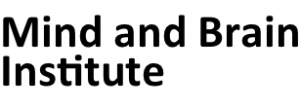Cariprazine: the next touchstone for the German AMNOG
The interesting new antipsychotic compound cariprazine was recently approved by the European Medicines Agency (EMA). In the United States, where it was approved already in 2015, it is available under the trade name Vraylar®. While the FDA approved it for the treatment of schizophrenia and manic or mixed episodes associated with bipolar disorder, the EMA approved it for the treatment of schizophrenia only.
In Europe cariprazine will be marketed as Reagila®. Cariprazine is a partial agonist at D2 and D3 dopamine receptors. What differentiates the compound from other dopamine partial agonists such as aripiprazole or brexpiprazole is its six- to eightfold higher affinity for human dopamine D3 over D2 receptors. This relative selectivity for D3 receptors is quite unique. In two somewhat older reviews we came to the conclusion that the available evidence suggests that cariprazine has an antipsychotic activity comparable to that of other antipsychotics such as risperidone (Gründer, 2010; Veselinović et al., 2013). I provide both papers upon request. However, a more recent paper published in the prestigious Lancet suggests that cariprazine could be more effective against negative symptoms than the comparator risperidone (Németh et al., 2017).

In this randomized double-blind study, 461 patients with stable schizophrenia and predominant negative symptoms were randomized to receive either cariprazine (3 – 6 mg, target dose 4.5 mg) or risperidone (3- 6 mg, target dose 4 mg) for a duration of six months. The primary outcome was change from baseline to week 26 or end of treatment on the Positive and Negative Syndrome Scale factor score for negative symptoms (PANSS-FSNS). Patients treated with cariprazine presented with a significantly larger improvement in negative symptoms than patients treated with risperidone (cariprazine: -8.90 points, risperidone: -7.44 points. The effect size was 0.31, which is considered a small one. However, even such a small effect size might represent a huge improvement for many patients.
In Germany, cariprazine is being marketed by the Italian pharmaceutical company Recordati, with its headquarters in Milan. The German base of the company is located in Ulm. Recordati will commercialize cariprazine in Western European countries and Algeria, Tunisia and Turkey. The company has no products for CNS disorders yet, and – to my knowledge – no experience with the German Act on the Reform of the Market for Medicinal Products (Arzneimittelmarkt-Neuordnungsgesetz, AMNOG). Large companies usually have complete departments for market access, which usually spend several months and hundreds of thousands of Euros on the preparation of the dossier, on which the Federal Joint Committee (Gemeinsamer Bundesausschuss, G-BA) together with the Institute for Quality and Efficiency in Health Care (Institut für Qualität und Wirtschaftlichkeit im Gesundheitswesen, IQWiG) will then base its benefit assessment. It will be quite a challenge for the small Recordati basis in Ulm to provide a dossier to the G-BA that withstands the critical assessment of the IQWiG. Will the G-BA/IQWiG base its assessment of cariprazine on a meta-analysis of all available data? That might lead to the conclusion that cariprazine does not offer a benefit compared to other available antipsychotics. Or do the authorities acknowledge the importance of the Lancet study? Do they accept 1.5 points difference on a rating scale with a small effect size as a measure of benefit for patients? These are burning questions that we – clinicians, patients, industry representatives and authorities – will be confronted with in the months to come.
While in many countries it might not make a difference wether a new drug is marketed by a small or a large company, Gedeon Richter certainly did not have in mind the complexities of the German market for medicinal products when it licensed cariprazine to a company for which the AMNOG represents a huge hurdle. I prophesy that the launch of cariprazine will be significantly delayed in Germany in comparison to other Western European countries.


